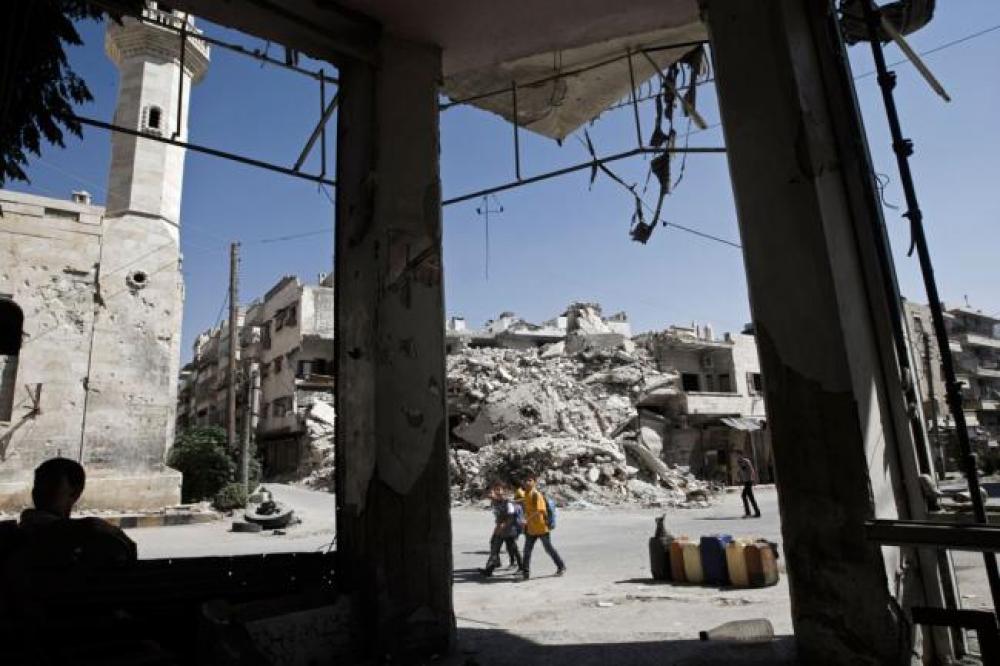Just Earth News | @justearthnews | 11 Apr 2018

New York: World Health Organization (WHO) on Wednesday said it is deeply alarmed by reports of the suspected use of toxic chemicals in Syrian city of Douma and said 500 patients showed chemical attack symptoms.
"According to reports from Health Cluster partners, during the shelling of Douma on Saturday, an estimated 500 patients presented to health facilities exhibiting signs and symptoms consistent with exposure to toxic chemicals," WHO said in a statement.
In particular, there were signs of severe irritation of mucous membranes, respiratory failure and disruption to central nervous systems of those exposed.
More than 70 people sheltering in basements have reportedly died, with 43 of those deaths related to symptoms consistent with exposure to highly toxic chemicals.
Two health facilities were also reportedly affected by these attacks.
WHO said it reminds parties to the conflict of their obligation to refrain from attacking medical facilities and personnel as per Security Council Resolution 2286 (2016).
"Any use of chemical weapons to cause harm is illegal under international law. Global norms against chemical weapons reflect a particular abhorrence to their disproportionate harm to the eldest, the most infirm, and the youngest among us," read a statement issued by the WHO.
"We should all be outraged at these horrific reports and images from Douma,” said Dr. Peter Salama, WHO Deputy Director- General for Emergency Preparedness and Response. “WHO demands immediate unhindered access to the area to provide care to those affected, to assess the health impacts, and to deliver a comprehensive public health response.”
WHO is currently coordinating the health cluster response for people displaced from East Ghouta and stands ready to provide more assistance to newly-accessible areas of East Ghouta as soon as access is granted.
WHO and partners are providing trauma care; medicines, medical supplies and personal protective equipment; mental health support; medical consultations and integrated reproductive health services; antenatal and obstetric care; vaccinations; and support for disease surveillance.
Photo: UNICEF/Giovanni Diffidenti